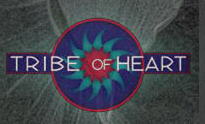|
WAGING WAR IN THE GLOBAL VILLAGE
There was once a bearded wanderer who grew up not so far from Baghdad. He
had some simple words of advice for those who wished to do right in the
world but who lacked the sophisticated training of scholars and politicians.
"Do unto others," he said, "as you would have them do unto you." This idea
may be found in one form or another in just about all of the world's
religions and wisdom traditions. It has garnered such respect over the
centuries that it is commonly referred to as "The Golden Rule."
As individual people living in community with others, just about all of us
intuitively grasp the rightness of the Golden Rule. It is easy to
understand, absolutely fair, and versatile enough to meet just about any
situation that comes along. But when we move beyond the scope of our
friendships and local communities, into the realm of national and
international affairs, somehow we find ourselves confused. When those
affected by our actions are far away, have a different language, race,
religion, or national identity, or belong to a different species, the Golden
Rule often gets pushed aside in favor of such ideas such as "Every man for
himself" or "Looking out for number one" or "Survival of the fittest." In
other words, "Do unto others as best serves oneself," or, to put it even
more bluntly, The Rule of Gold--those who've got the gold, make the rules.
The conflict between The Golden Rule and The Rule of Gold runs deep, down to
our very cores. One tells us to look inward, to recognize that what we have
in common with others is what is most important, and to understand that
goodness is defined by compassion and cooperation, by giving others the same
consideration we give ourselves. The other tells us that we can't afford
such lofty ideals, that our differences with others are what matter most,
and that we have to do whatever is necessary to compete and win, to acquire
and protect as much as we can for ourselves and those we consider our own.
Lately it seems like The Rule of Gold is gaining the upper hand in our
country. The corporate commandment to maximize quarterly profits at all
costs is becoming a kind of state religion. Buildings that might have once
been adorned with symbols of spiritual significance and community meaning
are emblazoned with corporate logos. We feel more empowered as consumers
than as citizens, the votes we make with our dollars carrying more weight
than the ones we cast in the ballot box. Sincerity is increasingly seen as a
naive anachronism, superseded by the artful science of impression
management. An endless barrage of media messages train us to view all
interactions with others, from the interpersonal to the international, as
business deals in which buying low and selling high are all that really
count. When the spoils are being divided up, "What's in it for me" is
becoming the only relevant question. And when it's time to deal with the
consequences of the level of acquisition and consumption now considered our
sacred right, "Not in my back yard" is our collective refrain.
Under the Rule of Gold, those who are not shareholders in our great
corporate enterprise become commodities, to be bought, sold, or disposed of
as the market dictates. The human beings who will be vaporized by the
weapons of mass destruction designed in our labs are no longer people. They
are ABTs, "air breathing targets." Barefoot, brown skinned boys and girls
shot in the head during a military assault are no longer somebody's
children. They are "collateral damage." The billions of animals raised in
abject misery on our factory farms are no longer living beings. They are
FPUs, "food production units." It's not much fun when you aren't a
shareholder of the great corporate enterprise, but someone has to pay the
freight for all the privileges we enjoy, and since it is surely not going to
be us, it is going to be "them."
The Rule of Gold is hard for us to get away from once we get started, a
little like joining the mafia, or getting addicted to a drug. The
benefits--things like cheap consumer goods, 500 TV channels, power windows
and air conditioning, the ability to flout international agreements at will
and settle disputes with overwhelming military force--are all a little
intoxicating, and can be very hard to give up. In the midst of it all,
however, there are moments of troubling sobriety, twinges of guilt and
remorse when we read that a pesticide deemed too dangerous to use in America
is being profitably sold for use in the poor countries of the world. Or that
the obesity of American children is at record levels, while every day of the
week, tens of thousands of children worldwide die of starvation. Or that in
the process of achieving rapid victory in the first Gulf War, our military
scattered hundreds of tons of bullets and tank shells made of depleted
uranium over vast areas of Kuwait and Iraq, and as a result, the rates of
leukemia and bone cancer have skyrocketed amongst Iraqi children, and will
continue to remain elevated for generations to come.
It's clear that our nation's blind obedience to The Rule of Gold is causing
a great deal of suffering to others. In us, our complicity over time gives
rise to a kind of soul sickness. It is as if we as a people are wandering
across the face of the earth in a sleepwalker's haze, only dimly aware that
our heavy steps are crushing the very life out of those more vulnerable than
ourselves, the very ones The Golden Rule would have us uplift from poverty,
relieve from suffering, and protect from harm--no less than we would hope to
receive ourselves, were we in their position.
We would be well served at this turning point in our history to take our
lead from the life and lessons of that bearded man who grew up not so far
from Baghdad, the man whose picture hangs in millions of American homes, and
whose words, though often ignored, might yet help us overcome the toxic
self-centeredness that has possessed our once great institutions. The time
has come for us to accept a level of responsibility commensurate with the
power and wealth we have acquired. The time has come to shun fear and greed
as the prime movers of our national affairs, and to open ourselves to the
courage of love and voice of truth that dwells deep within our hearts. War
and The Rule of Gold have no place in our global village. "What you do unto
the least of them," he taught us, "you do unto me."
James LaVeck is the Co-founder of
Tribe of Heart
a non-profit organization that produces
documentary films that encourage compassion for both people and animals.
On Peace, Iraq, Stopping war:
On the fate of children in Iraq:
On health effects of Depleted Uranium Munitions:
On factory farming:
On exporting pesticides to the Third World:
On consumption:
Tribe of Heart, Ltd.
|
On to Productions Main Page
On to Photo Galleries
Back to
Alice's Home Page
||The Story behind
the Face||
So, what's it like at the Office? ||
||
A little Humour, perhaps? ||
Kidstuff...||
Backstage fun...||
||
Interviews with Alice||
CD: Pergolesi's Stabat Mater ||
||
Ok, so how did all this silly stuff start, anyway? Opera Singer FAQ ||
||
The Cats of Rome||
||
Press
Quotes in English||
Biography
for Alice ||
||
Contact info for Alice || Or, E-mail Alice directly here ||
Back
to the Top||

CMI Arts
Copyright © 2000 - 2003 CMI Arts. All rights reserved.
